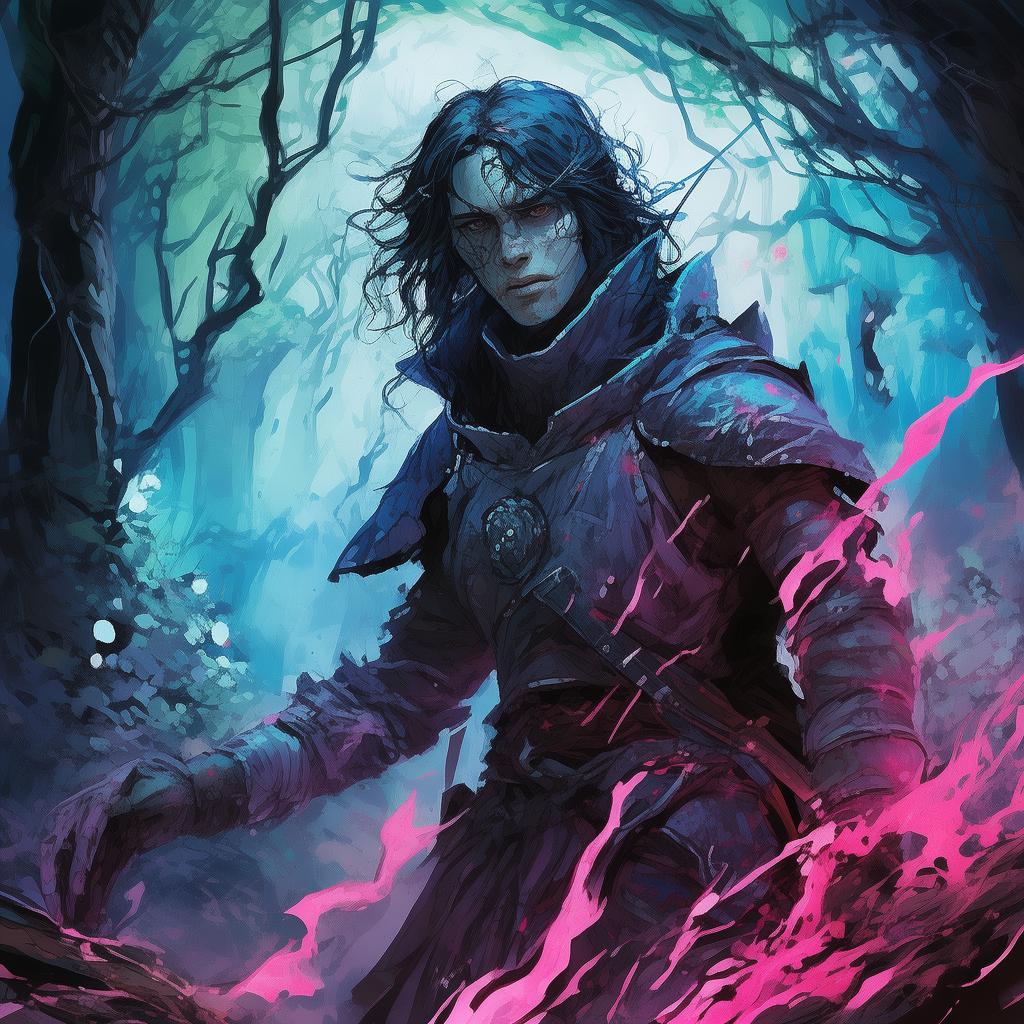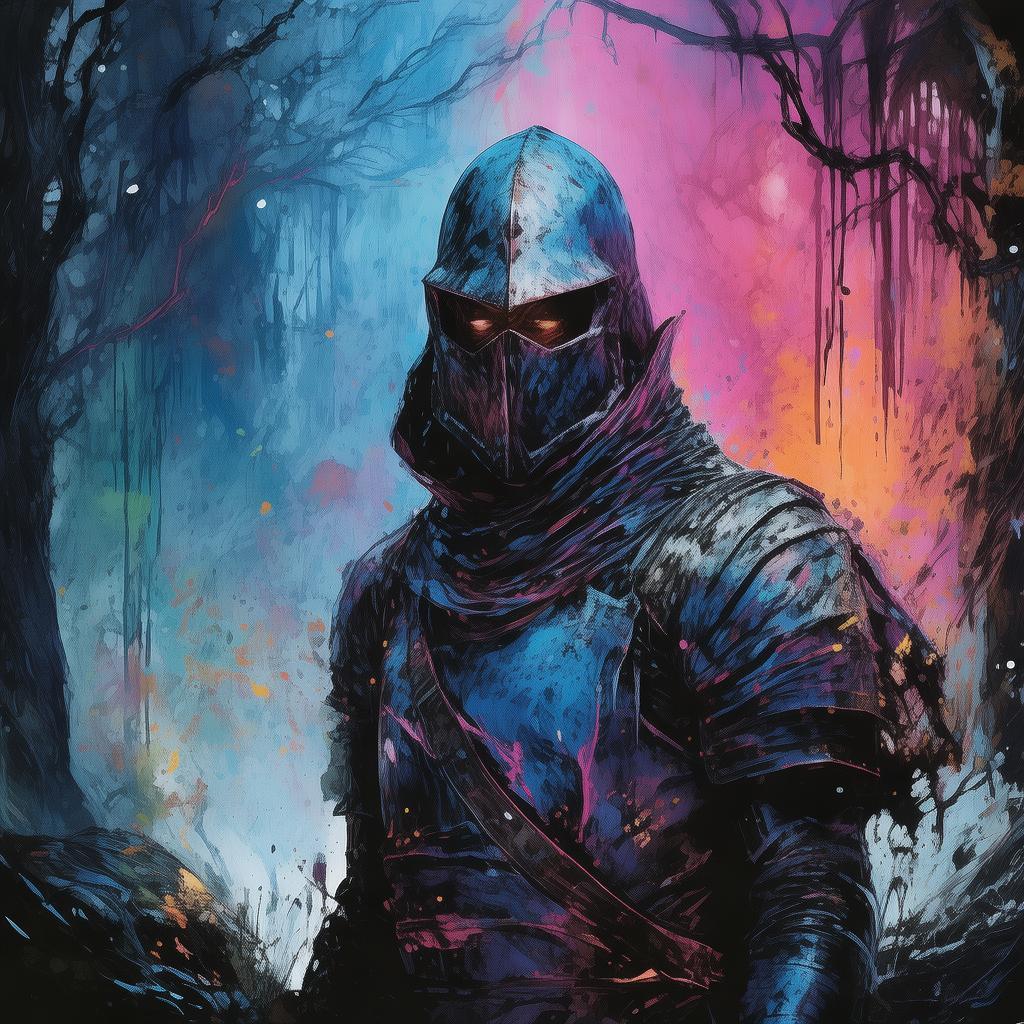The Last Pixel Paradox
In the heart of the bustling metropolis of Neo-Tokyo, where the neon lights painted the night sky with a kaleidoscope of colors, lived a man named Kaito. By day, he was an ordinary office worker, but by night, he was a master in the virtual realm of "The Pixel Paradox," a game that had taken the world by storm. The game was unlike any other; it was a fully immersive virtual reality experience that allowed players to step into a world of their own creation.
Kaito had spent years perfecting his skills, mastering the art of virtual combat and strategy, but he had never truly felt alive until he found himself lost within the game's intricate world. "The Pixel Paradox" was a place where every character, every creature, and every environment was as real as the man himself. It was a place of endless possibilities, a canvas where Kaito could paint his own reality.
![]()
One evening, as Kaito was deep in the heart of the game, he stumbled upon a hidden chamber. Inside, he found an ancient, glowing orb. The orb pulsed with an ethereal light, and as Kaito reached out to touch it, a blinding light enveloped him. When the light faded, he found himself no longer in the game but in a realm of pure pixels and code. He was trapped.
The realm was filled with other trapped souls, each of them once a player of "The Pixel Paradox." They were all searching for a way to escape, to return to their own worlds, but the more they searched, the more they realized that this place was the very essence of the game, the core from which it was woven. Kaito's mind raced with questions. How had he ended up here? Was this a dream, or was it real? And if it was real, what did it mean for his own existence?
Among the trapped souls was a wise old figure named Elysium, who had been a game designer for "The Pixel Paradox." Elysium explained that the game was more than just entertainment; it was a mirror to the human condition, a reflection of our deepest fears, desires, and hopes. The realm they were trapped in was a manifestation of the game's philosophy, a place where the line between the virtual and the real blurred beyond recognition.
As Kaito delved deeper into the realm, he began to understand the true nature of the game. He discovered that each character within the game had a unique story, a narrative that intertwined with his own. He learned that the game's creator had intended for the game to serve as a medium for self-reflection, a place where players could confront their own existential crises.
Kaito's journey took him through a series of trials, each one forcing him to confront his own flaws and virtues. He faced a virtual version of his own shadow, representing his darkest fears, and he met a manifestation of his ideal self, who offered guidance and wisdom. Through these encounters, Kaito came to understand that his own reality was a construct, just like the virtual world he had once called home.
One day, Elysium revealed to Kaito the true purpose of the realm. It was a place of redemption, a place where the trapped souls could find peace and closure. But to escape, Kaito had to confront the one person he had never truly faced: himself. He had to accept the choices he had made in the game, the ones that had led him to this place, and learn to forgive himself for his mistakes.
As Kaito prepared for his final trial, he felt a wave of determination wash over him. He realized that his journey in the virtual realm had been a metaphor for his own life. He had sought escape and adventure, but in doing so, he had lost sight of what truly mattered. Now, he had to find a way to integrate the lessons he had learned into his real life.
The trial was intense. Kaito was faced with a choice that would determine his fate. Would he continue to live in denial, or would he embrace the truth of his existence? In a moment of clarity, he chose to face the truth, to accept his past, and to move forward with an open heart.
With a final flash of light, Kaito was transported back to the real world. He found himself back in his apartment, sitting at his desk. The game was still running on his computer, but this time, he saw it differently. He understood that the game was a reflection of his own life, a tool for self-discovery and growth.
Kaito closed the game, and for the first time, he felt a sense of peace. He had found redemption, not just within the game, but within himself. The experience had changed him, had made him more aware of his own existence and the choices he made. He had learned that reality was a construct, but that it was also a canvas upon which he could paint his own destiny.
From that day forward, Kaito lived with a newfound sense of purpose. He took his experiences in the virtual realm and applied them to his real life, using them as a guide to navigate the complexities of the world. He had found redemption in the most unexpected of places, and in doing so, he had found himself.
✨ Original Statement ✨
All articles published on this website (including but not limited to text, images, videos, and other content) are original or authorized for reposting and are protected by relevant laws. Without the explicit written permission of this website, no individual or organization may copy, modify, repost, or use the content for commercial purposes.
If you need to quote or cooperate, please contact this site for authorization. We reserve the right to pursue legal responsibility for any unauthorized use.
Hereby declared.









